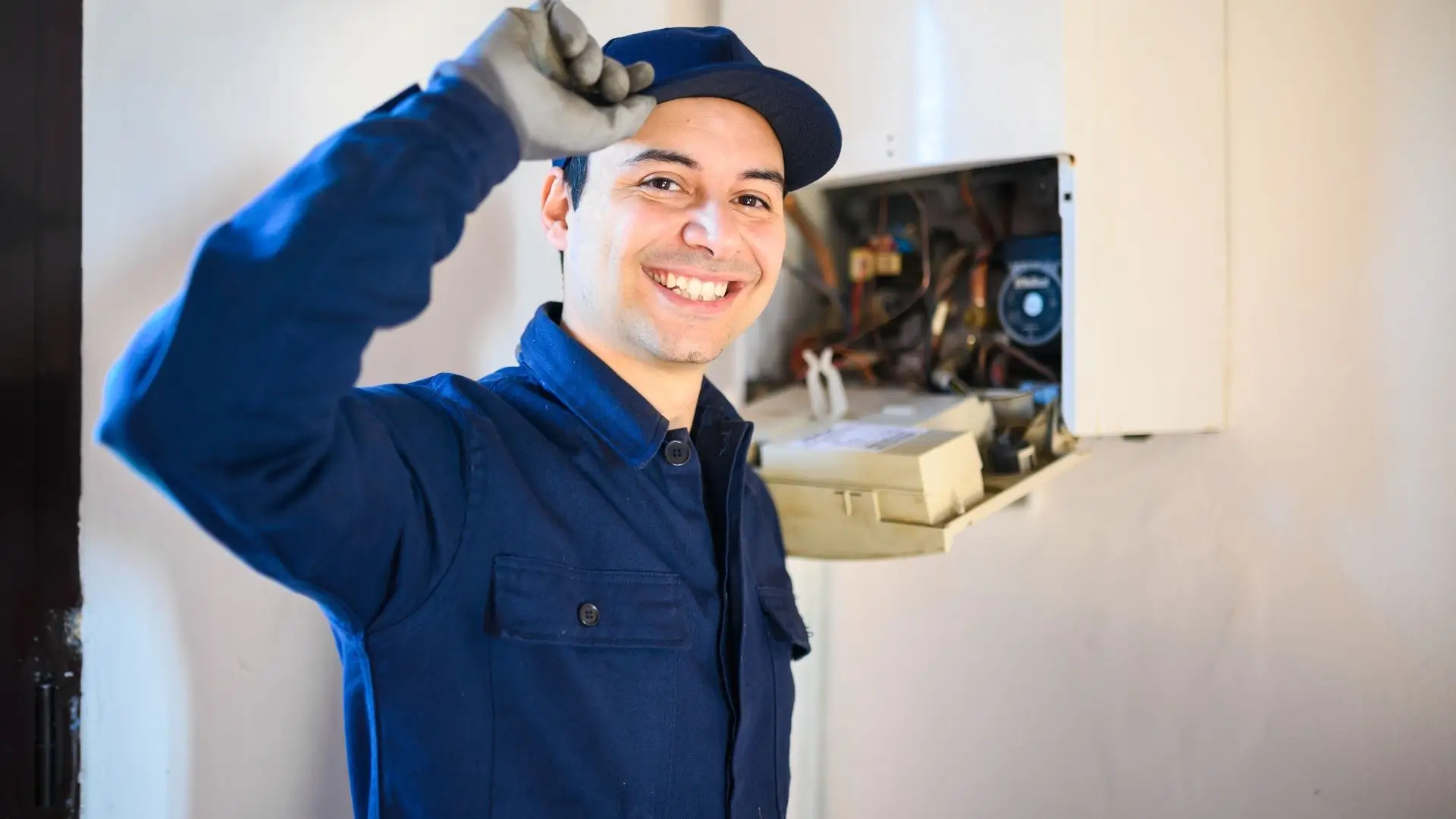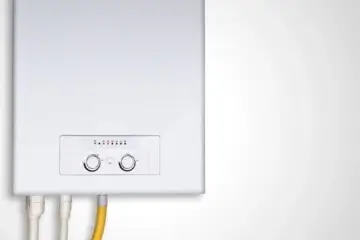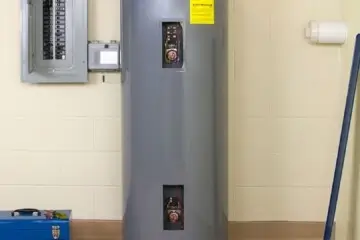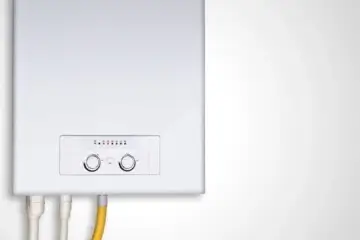Condensing tankless water heaters provide superior efficiency by extracting additional heat, achieving levels above 90%. They ensure a continuous hot water supply and require metal venting due to lower exhaust temperatures. On the other hand, non-condensing units have lower initial costs, but opting for condensing models can lead to reduced long-term energy expenses. To maintain optimal performance and longevity, regular maintenance tasks such as descaling and flushing are essential. Condensing units promote eco-friendly practices through heat recycling and reduced environmental impact. For professional assistance with water heater needs, consider CAN Plumbing and Drainage in Mississauga. Explore our detailed information to gain further insights into installation requirements, energy savings, maintenance, and environmental benefits.
Contact CAN Plumbing and Drainage for all your Water Heater Needs
When it comes to addressing your water heater needs, connecting with CAN Plumbing and Drainage in Mississauga is the initial step towards effective and dependable solutions. Our team specializes in the installation and maintenance of high-quality tankless water heaters, including non-condensing and condensing units. Tankless water heaters provide efficiency through on-demand heating, eliminating standby energy losses. Condensing models further improve efficiency by capturing heat from exhaust gases with a secondary heat exchanger, maximizing energy usage and reducing operational costs. The benefits of tankless water heaters encompass space-saving designs, longer lifespan, and a continuous supply of hot water. Our experts ensure proper venting during installation to safely expel combustion gases. Trust CAN Plumbing and Drainage in Mississauga to deliver exceptional service in selecting and installing the perfect water heater for your requirements.

CAN Plumbing and Drainage Services Related to Water Heaters
At CAN Plumbing and Drainage in Mississauga, we specialize in tankless hot water installations and replacements. Our local plumbing company in Mississauga is experienced in handling the intricacies of setting up tankless water heaters, ensuring efficient and reliable operation. Contact us for expert services that meet your water heating needs with precision and professionalism.
Tankless Hot Water Installations
When it comes to our plumbing and drainage services for water heaters, we specialize in efficient and precise installations of tankless hot water systems. Whether it’s condensing or non-condensing models, tankless water heaters provide high efficiency by heating water only when needed. The main difference between the two lies in how they handle exhaust gases. Condensing tankless water heaters utilize secondary heat exchangers to extract more heat from combustion gases, thus increasing efficiency. During installation, our team ensures proper venting to safely expel exhaust gases. Non-condensing units, while simpler in design, still require careful installation for optimal performance. With our expertise, you can rest assured that your tankless water heater will be installed correctly, offering you a dependable and energy-efficient hot water solution.

Tankless Hot Water Replacements
When it comes to efficient and accurate tankless hot water replacements, our plumbing and drainage services at CAN specialize in ensuring seamless installations of new systems. When replacing a tankless water heater, it’s important to consider the effectiveness of the unit. Condensing tankless water heaters are renowned for their high efficiency as they can extract more heat from the combustion process using heat exchangers. These units also offer long-term energy savings. On the other hand, non-condensing tankless water heaters, while still effective, may not be as energy-efficient as their condensing counterparts. During replacement, venting material is another crucial factor to ensure proper air intake and exhaust. Our team at CAN offers installation flexibility to efficiently meet your specific needs.

Efficiency and Performance Differences
In the realm of tankless water heaters, condensing units stand out for their superior efficiency and performance compared to non-condensing models. Condensing tankless water heaters incorporate a secondary heat exchanger to extract extra heat from the exhaust gas, maximizing energy efficiency. This innovative process enables condensing units to achieve efficiency levels exceeding 90%, leading to substantial energy savings over time. On the contrary, non-condensing tankless water heaters lack this additional heat exchanger, resulting in lower efficiency ratings and potentially higher energy costs. The enhanced performance of condensing models ensures a consistent supply of hot water, even during peak demand periods. Overall, the technology integrated into condensing tankless water heaters offers unmatched efficiency, performance, and long-term savings when compared to non-condensing units.
Installation and Space Considerations
When installing a tankless water heater, it’s crucial to consider your space layout and the technical requirements for optimal performance and efficiency. The choice between condensing and non-condensing models is influenced by space considerations. Condensing units, while more efficient, need metal venting because of lower exhaust temperatures. On the other hand, non-condensing units, though less efficient, offer more venting options. Both types require connecting to the water supply and ensuring proper venting for combustion gases. Condensing models have heat exchangers that extract more heat from exhaust gases, boosting efficiency. Understanding these factors is key for a successful installation that maximizes the benefits of your tankless water heater.

Energy Costs and Savings Analysis
When evaluating the financial impact of operating a tankless water heater, it is crucial to analyze energy costs and potential savings. The key distinction between condensing and non-condensing tankless water heaters lies in their efficiency levels. Condensing water heaters are recognized for their higher efficiency as they can extract additional heat from exhaust gases, resulting in reduced energy expenses. Conversely, non-condensing tankless water heaters are generally less efficient but offer advantages such as lower initial costs and easier installation. Despite the potentially higher upfront cost of condensing models, their energy-saving capabilities often lead to long-term financial savings, making them a preferred choice for individuals seeking to minimize their energy bills.
Maintenance Requirements and Longevity
Regular maintenance is crucial for ensuring the longevity and optimal performance of tankless water heaters, whether they are condensing or non-condensing models. Descaling and flushing are key maintenance tasks to prevent mineral buildup inside the heat exchanger, which can decrease efficiency and potentially lead to damage. Descaling involves using a solution to dissolve deposits, while flushing helps remove any remaining debris. It is also important to maintain the metal venting system to prevent corrosion and ensure safe operation. Following the manufacturer’s maintenance guidelines and scheduling annual inspections by a professional can significantly extend the lifespan of the tankless water heater, maximizing efficiency and performance.
Environmental Impact and Sustainability
When evaluating the environmental impact and sustainability of tankless water heaters, we focus on their energy efficiency and eco-friendly operation. Condensing tankless water heaters are specifically designed to harness the heat from exhaust gases to preheat the incoming water, leading to higher energy efficiency compared to non-condensing models. The condensation process in these units enables the recycling of heat that would otherwise be wasted. This effective energy utilization results in a reduced environmental impact by lowering overall energy consumption and greenhouse gas emissions. By maximizing energy efficiency and minimizing heat loss, condensing tankless water heaters play a key role in sustainability efforts by conserving resources and promoting eco-friendly practices in both residential and commercial settings.
Frequently Asked Questions About Water Heaters Near Me
Are Tankless Water Heaters Suitable for All Types of Homes, Including Older or Smaller Properties?
Tankless water heaters are a great option for all types of homes, including older or smaller properties. They offer on-demand hot water, are energy-efficient, space-saving, and have a longer lifespan compared to traditional tank water heaters. This makes them a versatile choice for homeowners looking to upgrade their water heating system.
Can Tankless Water Heaters Be Installed in Locations Where Traditional Water Heaters Cannot Be Placed?
Tankless water heaters offer the advantage of being compact and providing flexible venting options, allowing them to be installed in locations where traditional water heaters may not fit. This versatility makes tankless water heaters a great choice for a wide range of installation scenarios.
What Are the Potential Drawbacks or Limitations of Using a Condensing Tankless Water Heater?
When evaluating condensing tankless water heaters, it’s essential to consider potential drawbacks such as higher initial costs, intricate installation requirements, and the necessity for regular maintenance. Being mindful of these aspects is crucial for making well-informed decisions.
Are There Any Government Rebates or Incentives Available for Upgrading to a High-Efficiency Tankless Water Heater?
Government rebates and incentives are available for upgrading to high-efficiency tankless water heaters. These programs vary by location and can help offset the initial cost, making it a more cost-effective investment in the long run.
How Do Tankless Water Heaters Compare in Terms of Noise Levels During Operation Compared to Traditional Water Heaters?
When comparing tankless water heaters to traditional ones, noise levels during operation are typically lower. Tankless heaters operate quietly due to the absence of a continuously running storage tank. This results in a more peaceful environment.
Please rate our website
Let us improve this post!
Tell us how we can improve this post?


